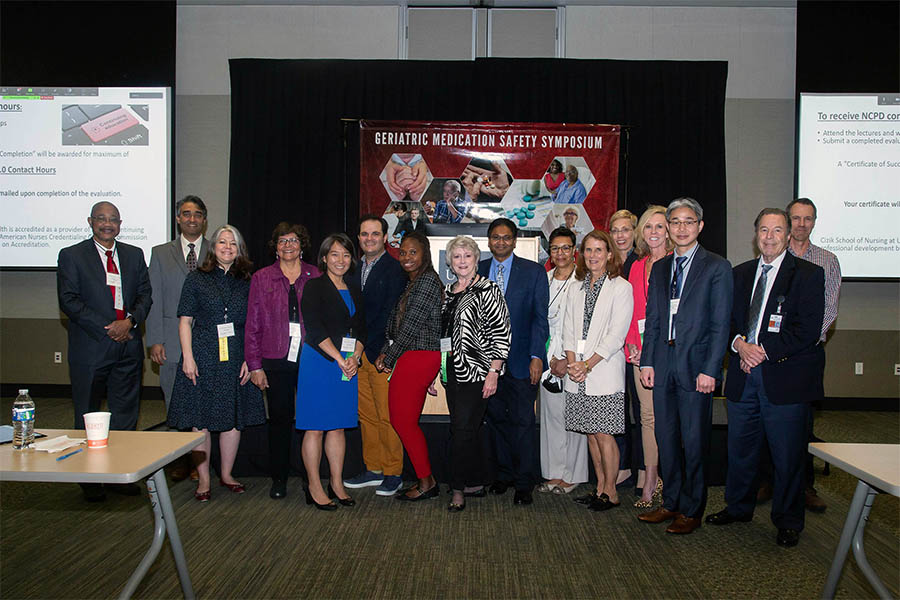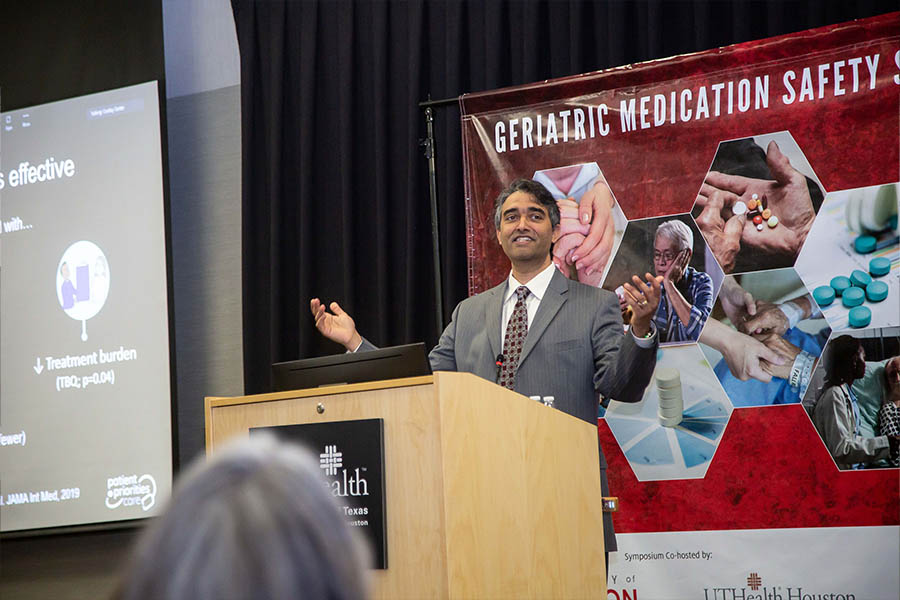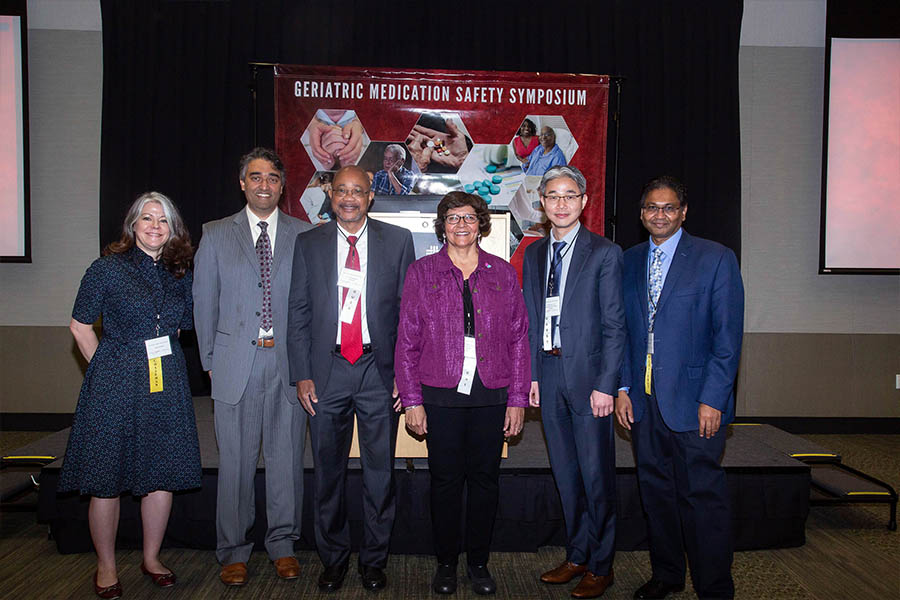Clarifying the gray areas

In a little more than a decade, the U.S. Census Bureau predicts that the country will reach a new milestone in demographics for the first time in history: By 2034, the number of older adults – those 65 and older – will outnumber those 18 and under.
Against that backdrop are numerous medication safety challenges in providing health care to the older adult patient population, from base-level concerns in decreasing metabolic and cognitive function as well as weakening immune systems to specific complexities of adherence, polypharmacy or prescribing cascades in managing multiple chronic diseases and overall higher health care costs.
In an effort to bring these conversations to forefront, the inaugural Geriatric Medication Safety Symposium – co-hosted by UH College of Pharmacy’s Department of Pharmaceutical Health Outcomes and Policy (PHOP) and McGovern Medical School at UTHealth Houston on April 7-8 – brought together nearly 100 health care practitioners, researchers, students, residents and fellows gained or presented new insights in patient care for older adults.

“This kind of symposium provides a platform for the clinicians and the researchers to come together to understand the issues of medication safety and improve the quality of care of patients,” said symposium co-chair Rajender R. Aparasu, PhD, FAPhA, PHOP department chair and Mustafa & Sanober Lokhandwala Endowed Professor. “I’m thankful that the National Institute on Aging has funded this symposium for five years, so we can maintain momentum on these critical conversations and interactions to identify actionable, evidence-based practices and policies that will ensure safe, effective medication use for the older adult population.”
The event traces its roots back to the Houston Medication Safety Symposium held from 2017 to 2019. Both symposia were led by co-chairs Aparasu and Holly M. Holmes, MD, MS, AGSF, Joan and Stanford Alexander Chair in Gerontology, associate professor and division director of the Joan and Stanford Alexander Division of Geriatric and Palliative Medicine at McGovern Medical School.

“Problems like over-medication, prescribing cascades, adverse drug reactions… these all can be prevented, but can lead to serious, negative outcomes for older people,” Holmes said. “We wanted a forum where we could promote a dialogue between clinicians and researchers to do something about medication safety problems.”
The symposium featured presentations and workshops by nationally recognized researchers and practitioners, continuing education for physicians, pharmacists, nurses and dentists, and podium and poster presentations by students, residents and postdoctoral fellows.
“I find it really informative to talk to people from different disciplines and hear their perspectives and challenges,” said presenter and workshop facilitator Dae Kim, ScD, MD, geriatrician and clinical investigator at the Hebrew SeniorLife Marcus Institute for Aging Research, the Division of Gerontology at Beth Israel Deaconess Medical Center, the Division of Pharmacoepidemiology and Pharmacoeconomics at Brigham and Women’s Hospital, and associate professor of Medicine at Harvard Medical School. “This leads to cross-fertilization of different ideas, potential collaborations and clinical innovations.”
Fellow presenter Mukaila Raji, MD, MS, FACP, professor and chief of Geriatrics & Palliative Medicine and Edgar Gnitzinger Distinguished Professor in Aging at the University of Texas Medical Branch Galveston, agreed that the symposium’s networking opportunities also provided abundant sources of inspiration for future activities in geriatric care.
“By coming together, we have conversations about different methods and approaches that have worked… in the pharmacy setting, the academic setting and the private setting,” Raji said. “The interactions that happen not just during the conferences, but in between, have been very meaningful. We form new relationships to do more research and discuss new ideas for grants on how we can be the best providers for our patients.”
Manju Beier, PharmD, BCGP, FASCP, president and founder of Geriatric Consultant Resources LLC and adjunct clinical associate professor of pharmacy at the University of Michigan, also advocated for more cooperation and collaboration among providers.
“We all bring a lot of knowledge base to the table; we can’t do it alone,” Beier said. “Everyone has a role to play and the interdisciplinary model probably works best, especially for older adults.”
Holding the two-day symposium at UTHealth Houston’s Denton A. Cooley MD and Ralph C. Cooley, DDS University Life Center (along with a virtual option, including Q&A sessions) in the heart of the Texas Medical Center creates a nexus for multidisciplinary and multi-institutional partnerships.
“Because everyone is in close proximity, it’s easier for use to collaborate and work with each other,” said presenter Aanand Naik, MD, professor, associate dean and chair of the Department of Management, Policy, and Community Health at the UTHealth Houston School of Public Health and Nancy P. & Vincent F. Guinee, MD Distinguished Chair and director of the UTHealth Houston Consortium on Aging. “Some of the challenges require a multidisciplinary team to be able to tackle them effectively, and having all of these disciplines next door to each other makes it easier and more effective.”